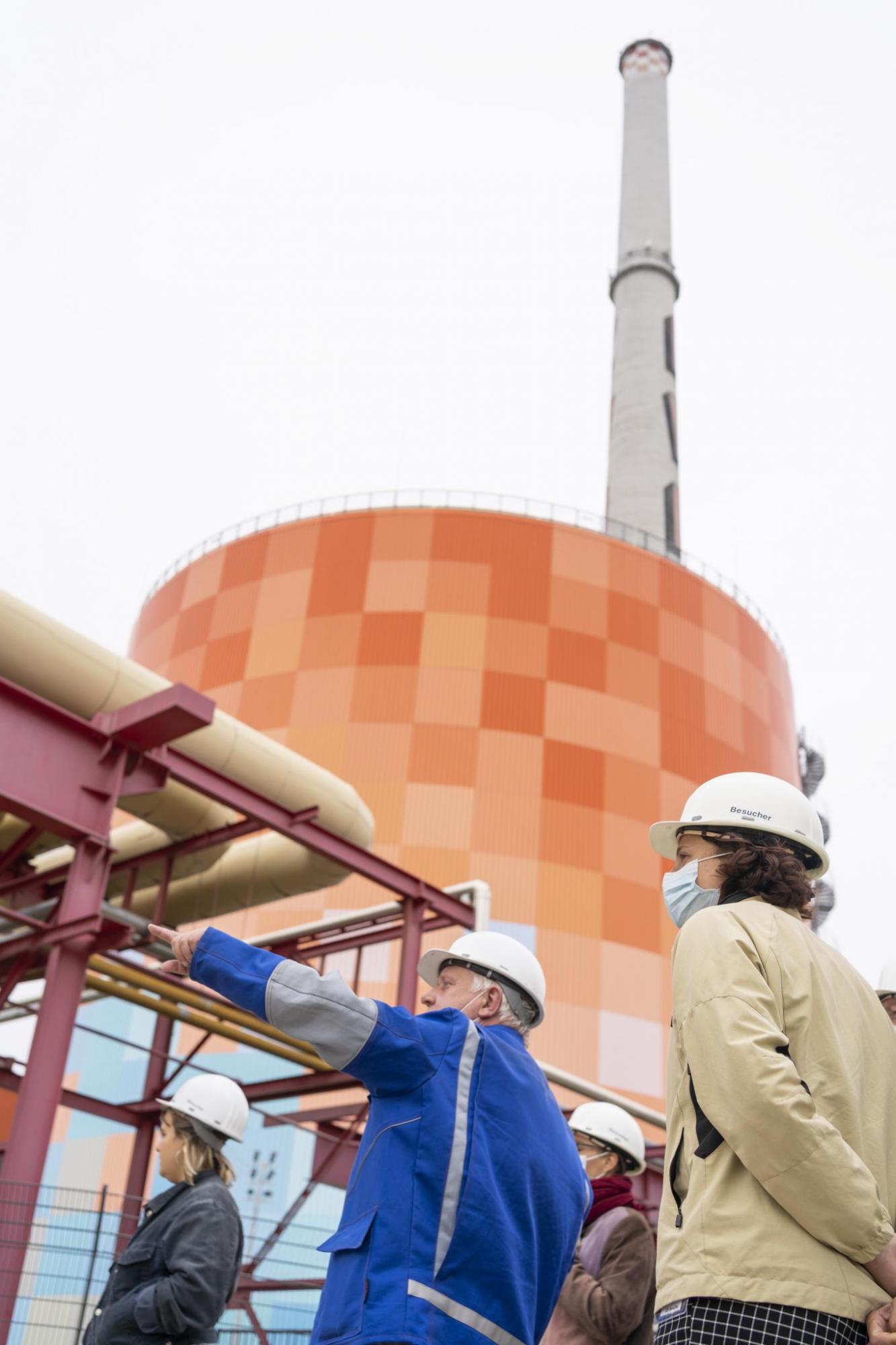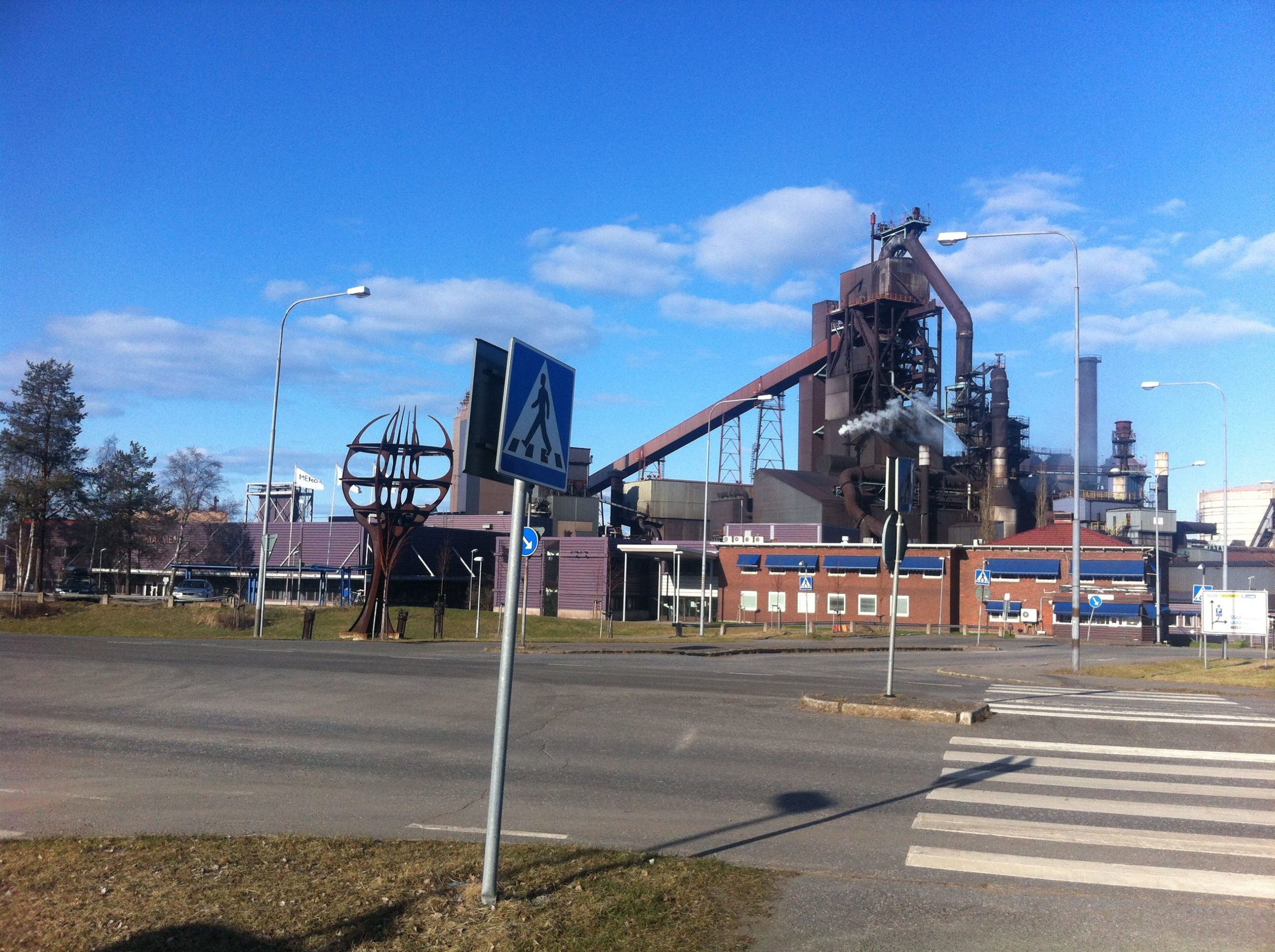Documentation
Energopolitics and Urban Industrial Entanglements
Module I, Energopolitics and Urban Industrial Entanglements, traced the entanglements of post-carbon futures in and of the city. Siarhei Liubimau (Vilnius) talked about the end of nuclear exceptionalism in the Lithuanian city Visaginas, Eeva Kesküla (Tallinn) introduced us to mining nostalgias in Estonia and Kazakhstan, Ralf Hühne and Jörg Bittenbinder from the Geschichtswerkstatt guided us through post-socialist Halle-Neustadt, whilst a team from Stadtwerke Halle confronted us with post-carbon promises in the thermal power station Dieselstraße. With these lectures, discussions, workshops, and field trips, this module made visible that energy transition always also means societal change. Thus, in this process, local knowledge production shapes and forms part of a multitemporality of the present.
In her talk about Post-Socialism, class and time in Estonian and Kazakhstani mining communities, Eeeva Kesküla challenged our notion of post-socialism as something relating to the past only. Using the concept of “disjunctive comparism” (Lazar 2012), she pointed out cultural worlds, the loss of symbolic capital, and working-class moralities in two post-industrial and post-socialist mining communities. For these miners, the multiple afterlives of post-socialism and post-industrialism constantly reappear in everyday time – not as history but in the form of “entangled temporalities” (Bear 2014).
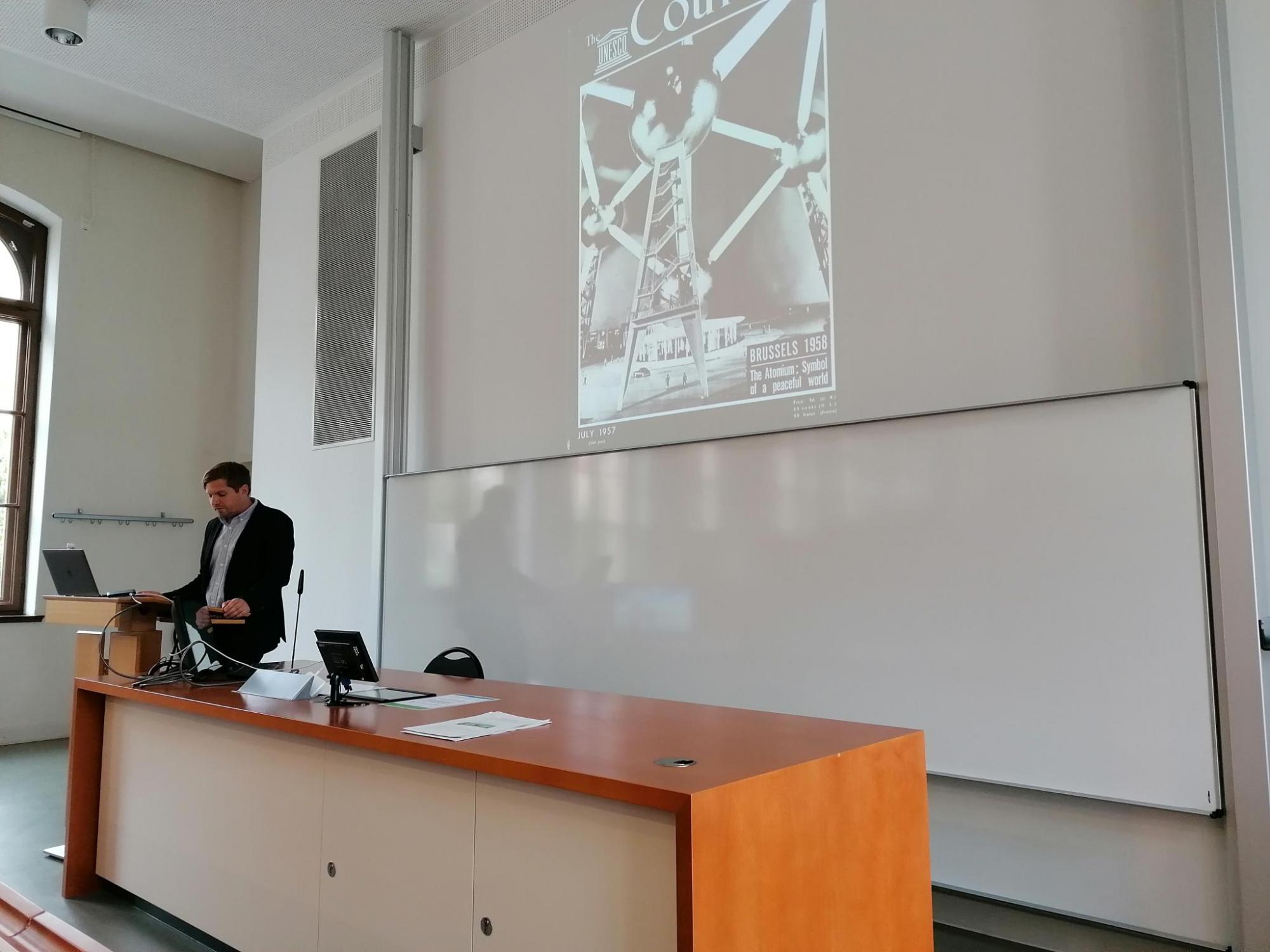
Siarhei Liubimau (Associate Professor, EHU Vilnius) (Photo: Felix Schiedlowski)
Beforehand, with our field trip to Halle-Neustadt, Ralf Hühne and Jörg Bittenbinder showed us how such “entangled temporalities” can be inscribded in the build environment. Their work at the Geschichtswerkstatt aims to recall the proud industrial past of the “Chemiearbeiterstadt Halle-Neustadt”. Since 1991 Halle-Neustadt is no longer a socialist model of industry, energy and society, but a district of Halle. Neustadt was built for the chemical industry site in Leuna in the 1960s. Today, the chemical industry is still alive but not dependent on Neustadt any longer. But in our two hours walk, Ralf and Jörg argue against the well-known Neustadt clichés of emptiness, removal and poverty. Instead, they try to recall the bygone pride of the place as a guiding narrative for the present.
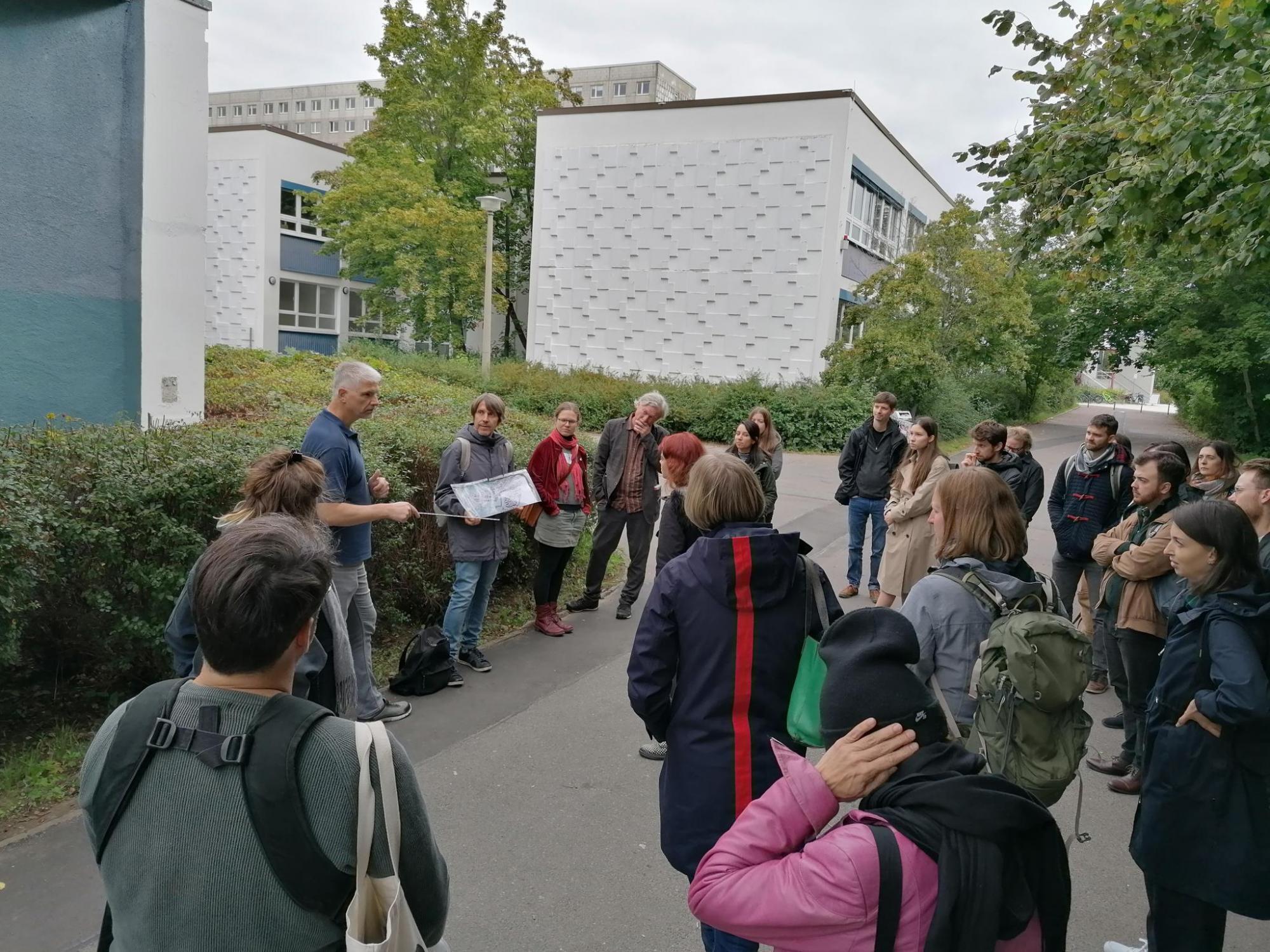
Guided Tour, Halle-Neustadt (Photo: Felix Schiedlowski)
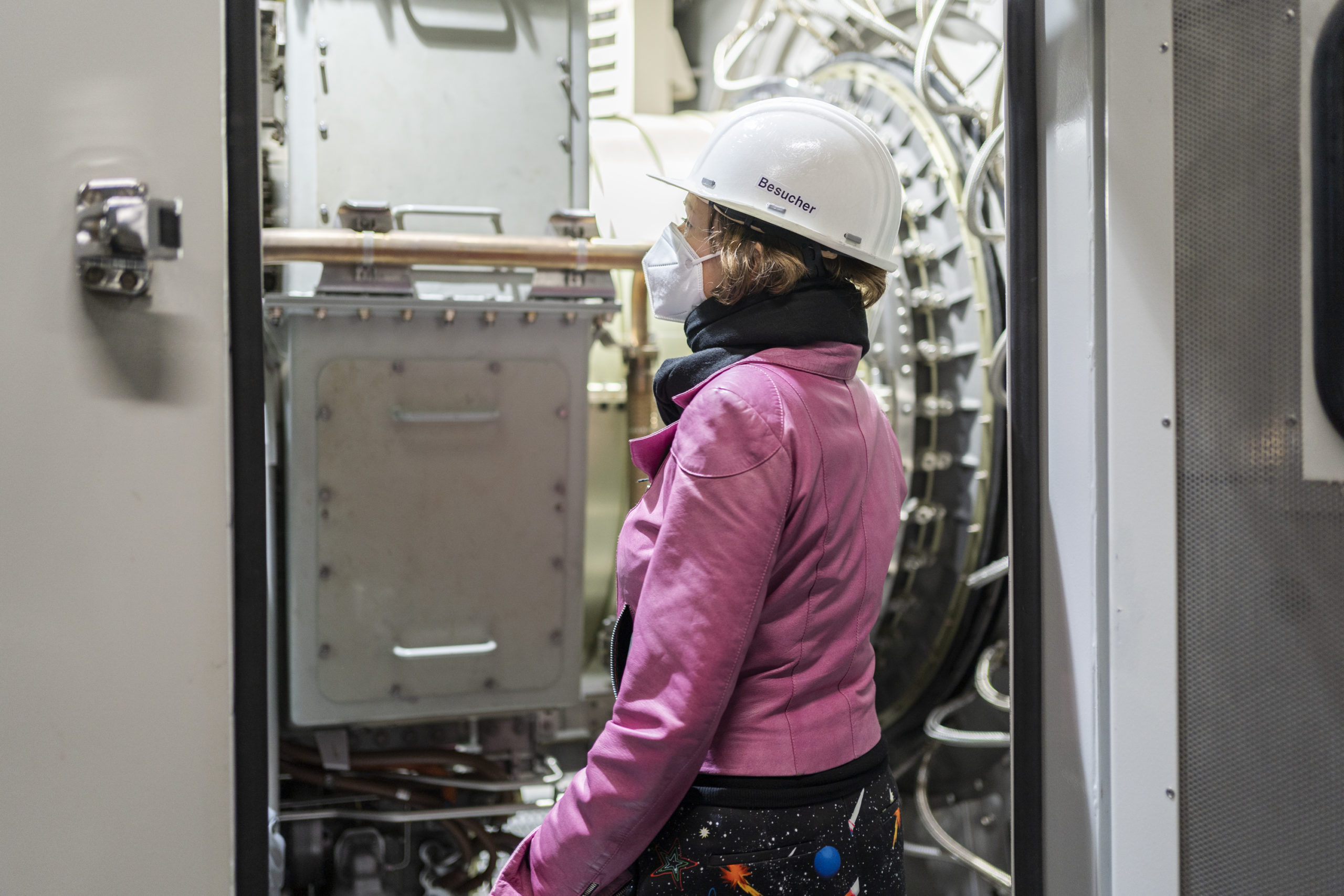
Guided Tour, Energiepark Dieselstraße (Photo: Saara Mildeberg)
Our interlocutors from the second field trip of this module frame the same message somewhat differently. No urban modernity can exist without energy modernity, staff from the thermal power station Dieselstraße in Halle told us, adding that the power station is “pretty clean compared to coal power stations”. They have replaced coal and oil, “some dirty energy”, with natural gas and renewable energies. Today, the power station depends on gas, but they are eager to use wind, solar and cogeneration to heat the city on an expanding scale. The giant heat reservoir on the power plant complex is named “Energy and Future Storage”, mirroring their confidence to push the city into the energy future.
The Energopolitics and Urban Industrial Entanglements module traced how deeply intertwined energy change is with societal change, ideas of progress and notions of normality. The concept of multitemporality was key for this module, with urban energy entanglements spanning both the past and the future, staged and contested in the present. Therefore, this module builds the foundation for the two modules to follow, focusing on energy futures and pasts.
by Felix Schiedlowski, Module Convener
Interview with Siarhei Liubimau (Associate Professor, EHU Vilnius), by Florian Bortic
The 2021 Summer School in Halle: A PhD student’s reflective account
Matthias Kloft
As the train crept its way towards the Halle train station, I looked out my window and took stock of the scenery. Prominent across the landscape was a large smoking chimney that belonged to a coal powerplant. It was some kilometres away from the train tracks. The thick smoke coming out of the stacks had that optical illusion where it did not seem to be moving at all. It looked almost as if it was frozen in time. It seemed somehow appropriate that the Summer School on Post Carbon Futures was about to be held in this city… (to read on please find the pdf below).
On Eyesores, Remnants, and Ruins: Learning to See in New Ways
Friederike Pank
As I listened to the intriguing discussions at the summer school, my gaze now and then travelled a bit. Through the window to my left, I was often drawn into the stream of trams, cyclists, and pedestrians who passed by the lecture hall on their way to destinations unknown to me. As my gaze followed them, back and forth and back again, it eventually got stuck on something which did not move. Sturdily in the background of all this motion stood an abandoned house, its windows barricaded, trees and weeds growing beside and into it, its façade ornamented with graffiti. It sat uncomfortably in an awkward space on the side of a perfectly renovated city road, overlooking perhaps somewhat jealously the impeccable pavement with its neatly kept trees at its feet. On the other side of that road, it seemed to watch us, the participants of the summer school, as we debated industrial pasts, urban entanglements, and uncertain futures… (to read on please find the pdf below).
Post Carbon Futures Friederike Pank
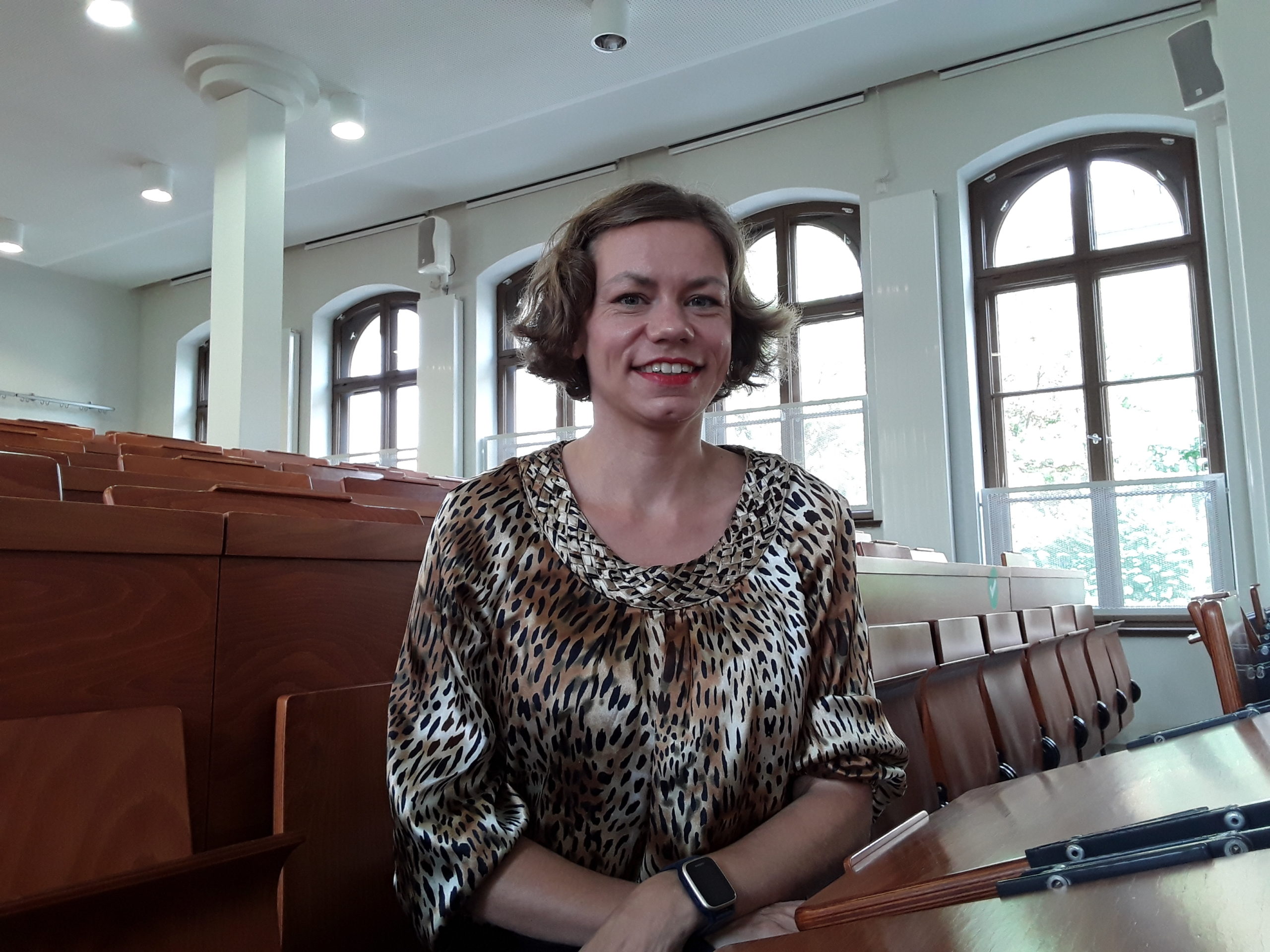
Eeva Kesküla (Associate Professor, Tallinn University) (Photo: Florian Bortic)
Interview Eeva Kesküla
„The first days of the summer school were really exciting for me. Because of Covid, it has not been possible to travel for two years, so I was very happy to meet people again now. The direct interaction and especially the short informal conversations over coffee are often so much more fruitful than the strictly timed slots in online meetings. […] It’s really great that so many people from different disciplines come together here. So there is the possibility to exchange about different forms of knowledge. The speakers also contribute their respective know-how. In addition, the field trips are really great. This creates completely different ways of experiencing how our theories and questions actually work in the ‚real‘ world.“
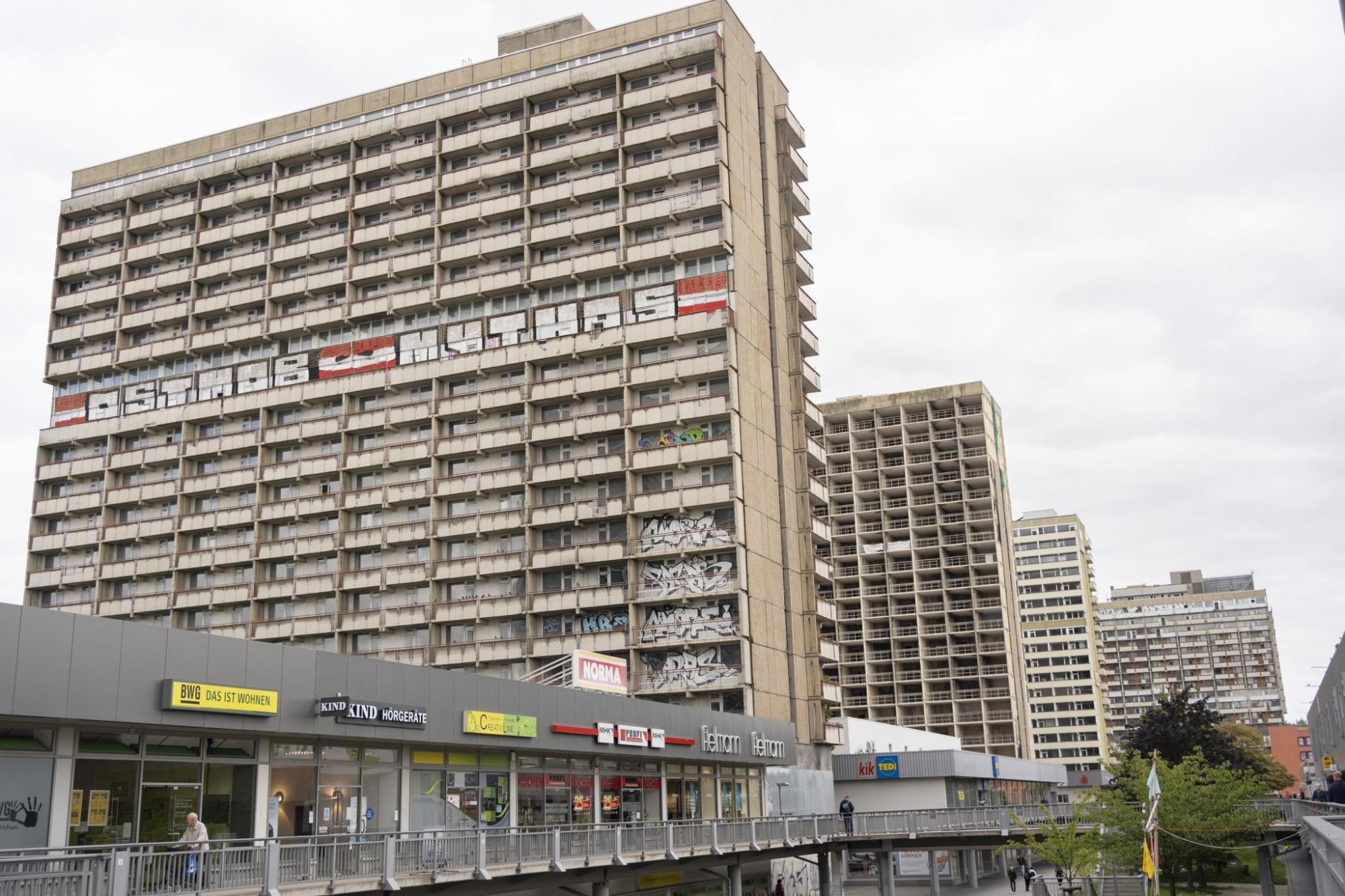
Halle-Neustadt (Photo: Saara Mildeberg)
Energy Pasts, Energy Futures
Hermine Bähr
I see Anthropology as a significant contribution to bridge that gap between global trends, top-down politics and local entanglements. The way anthropologists work, field-site oriented and interested in specific situations that cause unease in pursuing common pathways, is valuable. Making places matter is helpful to consider the living and working conditions of people affected by changes. In addition, it is of use to consider specific local challenges and entanglements that are not easily dissolved by the introduction of new technologies or tools. Finally, the broader perspectives stemming from the exchange with peers during the summer school are helpful, too. Social scientists and anthropological researchers add valuable views to the challenges ahead to do justice to the common futures we must build collectively… (to read on please find the pdf below).
Post Carbon Futures Hermine Bähr
Reflexions on the Summer School „Post-Carbon Futures: Cities, Industries and Energies in Central Europe“
Miloš Đurović
In the PhD project that I started last spring, I am focusing on human-environmental relations in a polluted (post)industrial coal-mining town. My interest lies in the question of the local community’s agency and the affects and dispositions people deploy; those that Sherry Ortner defines as “dark anthropology” and those that make up “the anthropology of good”. Environmental suffering, waiting, despair, resilience and environmental hope are some of them. As Montenegro is a EU candidate member, thus obliged to limit or suspend the operation of coal-fired thermal power plants, the context of the energy transition is of high importance for my research. It is easy to imagine how the EU energy policies and political discourse might powerfully shape the local narratives and dynamics I encounter in the field…(to read on please find the pdf below)
Post Carbon Futures Miloš Đurović
